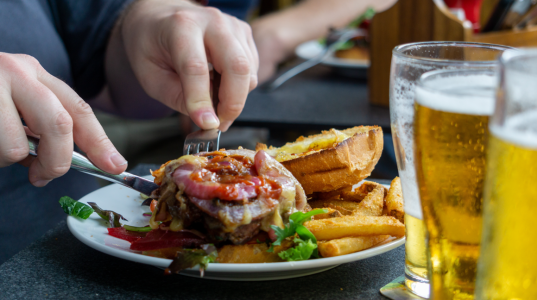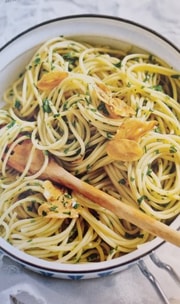This Dietitian Defends 'Ultra-Processed' Foods – Here's Why It Might Change Your Entire Diet Plan!
By
Gian T
- Replies 2
In the ever-evolving conversation about what constitutes a healthy diet, the term 'ultra-processed' has become somewhat of a buzzword, often accompanied by a negative connotation. But what if the narrative around these foods isn't as clear-cut as we've been led to believe? Jessica Wilson, a California-based registered dietitian, is challenging the widespread demonisation of ultra-processed foods and offering a fresh perspective that might just revolutionise your approach to eating.
Wilson's interest in the topic was piqued during the summer of 2023 when Dr. Chris van Tulleken, an author and infectious-disease physician, was promoting his book 'Ultra-Processed People.' Van Tulleken's self-experiment, which involved consuming a diet primarily composed of ultra-processed foods, resulted in weight gain, hormonal imbalances, and changes in his brain, as seen in MRI scans. His experience seemed to confirm the dire warnings about these foods.
However, Wilson, who works with clients from marginalised communities, saw a different side to the story. She was concerned that the negative press around van Tulleken's experiment was shaming those who rely on processed foods, including many Americans who face food insecurity or have limited access to fresh produce. This group often includes lower-income individuals and people of colour, who are disproportionately affected by what Wilson refers to as 'food apartheid.'
To explore the issue further, Wilson conducted her own month-long experiment, sourcing 80% of her daily calories from highly processed foods – a figure not much higher than the average American's intake. Her diet included items like soy chorizo, ready-to-eat tamales, cashew milk yogurt, and her beloved Costco pupusas. Surprisingly, Wilson reported feeling more energetic and less anxious, attributing the positive change to consuming full meals rather than sporadic combinations of whole-food ingredients.
This dichotomy between Wilson's and van Tulleken's experiences raises important questions: Can ultra-processed foods be part of a healthy diet? Are they all deserving of their bad reputation?
The debate comes at a critical time, as the U.S. government prepares to release the updated Dietary Guidelines for Americans in 2025, which may include guidance on ultra-processed foods for the first time. Meanwhile, the U.S. Food and Drug Administration is considering new regulatory approaches for these products, and the food industry is lobbying against recommendations that could impact their profits.
The term 'processed food' itself is a source of confusion. The NOVA food classification system, widely used by experts, categorises foods based on their level of processing, from unprocessed to ultra-processed. However, there's no consensus among scientists on how to define processed foods, and there's no indication of processing level on food labels.
Despite the lack of agreement, research has linked ultra-processed foods to a range of poor health outcomes, including depression, diabetes, cancer, cardiovascular disease, and cognitive impairment. Yet, not all ultra-processed foods are created equal. Some, like flavoured yogurts and store-bought vegetable pasta sauces, may offer nutritional value, while others, like chips and candy, are known to be detrimental to health.
A 2019 study by the National Institutes of Health (NIH) found that people consumed more and gained weight on an ultra-processed diet compared to a minimally processed one, even when the diets were equivalent in calories, sugar, salt, and macronutrients. This suggests that there's something about ultra-processed foods that drives overeating and may cause health problems.
However, a 2024 study suggested that overall diet quality might be more important than the proportion of processed foods consumed. This implies that if someone eats a balanced diet with plenty of nutritious foods, the inclusion of some processed items might be acceptable.
Wilson's stance is that avoiding all ultra-processed foods is unrealistic and potentially harmful, especially for those with limited resources. She argues that for many people, these foods can be the difference between going to bed hungry or satisfied. Her approach focuses on helping clients incorporate nutrient-rich foods into their diets affordably, which sometimes includes ultra-processed options.
As we await the 2025 Dietary Guidelines Advisory Committee's report on ultra-processed foods, it's clear that more research is needed. In the meantime, Wilson's defence of these foods invites us to reconsider our diet plans and the role that ultra-processed foods play in them. It's a reminder that nutrition is complex, and blanket recommendations may not suit everyone's circumstances.
 So, dear readers, what do you think about ultra-processed foods? Have you found a place for them in your diet, or do you avoid them at all costs? Share your thoughts and experiences in the comments below – let's have a healthy discussion about what's on our plates!
So, dear readers, what do you think about ultra-processed foods? Have you found a place for them in your diet, or do you avoid them at all costs? Share your thoughts and experiences in the comments below – let's have a healthy discussion about what's on our plates!
Wilson's interest in the topic was piqued during the summer of 2023 when Dr. Chris van Tulleken, an author and infectious-disease physician, was promoting his book 'Ultra-Processed People.' Van Tulleken's self-experiment, which involved consuming a diet primarily composed of ultra-processed foods, resulted in weight gain, hormonal imbalances, and changes in his brain, as seen in MRI scans. His experience seemed to confirm the dire warnings about these foods.
However, Wilson, who works with clients from marginalised communities, saw a different side to the story. She was concerned that the negative press around van Tulleken's experiment was shaming those who rely on processed foods, including many Americans who face food insecurity or have limited access to fresh produce. This group often includes lower-income individuals and people of colour, who are disproportionately affected by what Wilson refers to as 'food apartheid.'
To explore the issue further, Wilson conducted her own month-long experiment, sourcing 80% of her daily calories from highly processed foods – a figure not much higher than the average American's intake. Her diet included items like soy chorizo, ready-to-eat tamales, cashew milk yogurt, and her beloved Costco pupusas. Surprisingly, Wilson reported feeling more energetic and less anxious, attributing the positive change to consuming full meals rather than sporadic combinations of whole-food ingredients.
This dichotomy between Wilson's and van Tulleken's experiences raises important questions: Can ultra-processed foods be part of a healthy diet? Are they all deserving of their bad reputation?
The debate comes at a critical time, as the U.S. government prepares to release the updated Dietary Guidelines for Americans in 2025, which may include guidance on ultra-processed foods for the first time. Meanwhile, the U.S. Food and Drug Administration is considering new regulatory approaches for these products, and the food industry is lobbying against recommendations that could impact their profits.
The term 'processed food' itself is a source of confusion. The NOVA food classification system, widely used by experts, categorises foods based on their level of processing, from unprocessed to ultra-processed. However, there's no consensus among scientists on how to define processed foods, and there's no indication of processing level on food labels.
Despite the lack of agreement, research has linked ultra-processed foods to a range of poor health outcomes, including depression, diabetes, cancer, cardiovascular disease, and cognitive impairment. Yet, not all ultra-processed foods are created equal. Some, like flavoured yogurts and store-bought vegetable pasta sauces, may offer nutritional value, while others, like chips and candy, are known to be detrimental to health.
A 2019 study by the National Institutes of Health (NIH) found that people consumed more and gained weight on an ultra-processed diet compared to a minimally processed one, even when the diets were equivalent in calories, sugar, salt, and macronutrients. This suggests that there's something about ultra-processed foods that drives overeating and may cause health problems.
However, a 2024 study suggested that overall diet quality might be more important than the proportion of processed foods consumed. This implies that if someone eats a balanced diet with plenty of nutritious foods, the inclusion of some processed items might be acceptable.
Wilson's stance is that avoiding all ultra-processed foods is unrealistic and potentially harmful, especially for those with limited resources. She argues that for many people, these foods can be the difference between going to bed hungry or satisfied. Her approach focuses on helping clients incorporate nutrient-rich foods into their diets affordably, which sometimes includes ultra-processed options.
As we await the 2025 Dietary Guidelines Advisory Committee's report on ultra-processed foods, it's clear that more research is needed. In the meantime, Wilson's defence of these foods invites us to reconsider our diet plans and the role that ultra-processed foods play in them. It's a reminder that nutrition is complex, and blanket recommendations may not suit everyone's circumstances.
Key Takeaways
- Dietitian Jessica Wilson has voiced her support for 'ultra-processed' foods, challenging the negative stigma often associated with them and highlighting their role in managing hunger and nutritional needs for those with limited access to fresh food or tight budgets.
- Dr. Chris van Tulleken's experiment and subsequent book 'Ultra-Processed People' suggested negative health impacts from a diet high in ultra-processed foods, but Wilson experienced more energy and less anxiety when incorporating these foods into her diet.
- The upcoming U.S. Dietary Guidelines for Americans may include, for the first time, guidance on ultra-processed foods, with the food industry reportedly lobbying against processed food consumption recommendations.
- Studies and dietitians present mixed views on ultra-processed foods, with some suggesting that nutrient-dense, ultra-processed foods can play a role in a healthy diet, while others highlight links to poor health outcomes when diets are heavily processed.








